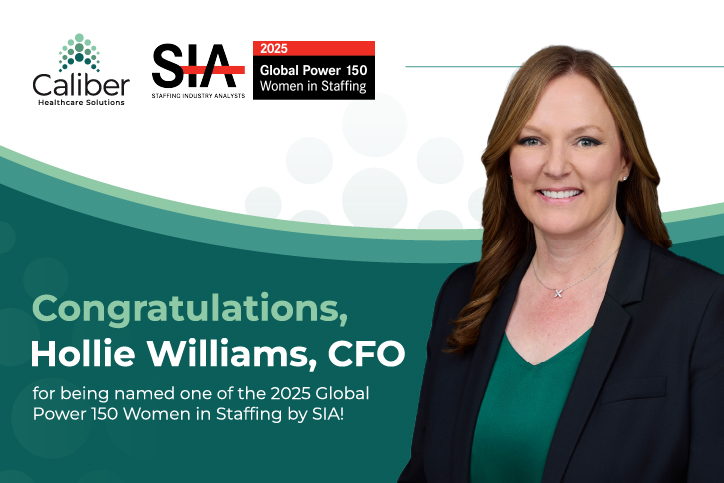.jpeg)
The medical community is painfully aware that the physician shortage is worsening. However, a brewing crisis exists within the ongoing staffing shortages that even many medical professionals and administrators may not recognize. This crisis centers on the dwindling number of anesthesia providers that has been exacerbated by many internal industry factors like high retirement numbers as well as external circumstances, including a rapidly aging population and recent supply chain issues.
The growing shortage of anesthesia providers is a well-documented trend. An AAMC study, “The Complexities of Physician Supply and Demand: projections from 2017-2032,” revealed a startling prediction. The health system expects a shortage of between 24,800 and 65,800 specialist providers in the United States by 2032. This is in addition to the current shortage of over 10,000 anesthesia providers.
The lack of physician anesthesia providers will likely impact this country's health care quality dramatically. Without qualified Anesthesiologists, many critical surgical procedures may be delayed or even performed under the supervision of CRNAs, rather than medical doctors. These bottlenecks in delivery could compromise the caliber of care many patients receive.
The demand for Anesthesiologists will only grow in the coming years as the U.S. population ages and more people obtain health coverage. The number of Americans aged 65 or older is expected to increase to 83.7 million by 2050, almost twice the number in 2012. This rapidly growing demographic should place additional strains on an already overburdened healthcare system that relies heavily on anesthesia providers.
Anesthesia services are unique in several ways regarding the ongoing shortage. More Anesthesiologists aged 50 or older are likely to enter full retirement than other physician specialists. This is related to comparatively lower job satisfaction than their medical colleagues stemming from poor compensation and excessive on-call responsibilities.
The dual pressures of onerous professional responsibilities and inadequate compensation will not likely diminish soon. While the insured population continues to grow, major payers like Medicare continue to undercut private insurance reimbursement rates. On average, Medicare only pays 30 percent of what private payors provide.
The same AAMC study found that by 2032, approximately 40% of physicians will be over 65. By 2017, 56% of the then 32,000 certified physician anesthesia providers actively practicing were over age 55, and 80% were over 45. As the workforce ages, there simply aren’t enough new Anesthesiologists to replace them. The AAMC blames caps on Medicare funding for residency positions as a significant factor for the low number of new anesthesia providers. Additionally, any measures taken to increase enrollment in medical school or create more residency positions will take time to go into effect, given the 7-15 years it takes to become an anesthesia provider in America.
Another exacerbating factor is limited access to quality anesthesia care for patients due to a shortage of anesthetic drugs. Based on the American Society of Anesthesiologists studies, the drug shortage has been ongoing for at least a decade. However, supply chain issues and increased demand for anesthetic substances have made it even more difficult to supply anesthetists with needed supplies adequately. The ASA asserts that anesthesia providers have difficulty providing adequate patient care when they are not provided with needed anesthesia drugs.
The impact of Covid-19 on the Anesthesiologist shortage cannot be overstated. An existing shortage of providers was made worse by the burnout experienced during the pandemic, with many physician anesthesia providers opting to retire earlier than planned. Additionally, supply chain issues and medication shortages made it difficult for Anesthesiologists to do their job.
Locum tenens positions could be important in combatting the anesthesia provider shortage. With increased autonomy, higher pay, and flexible schedules, locum tenens Anesthesiologist roles could be attractive to physician anesthesia providers considering retiring. The ability to work fewer hours, travel, and make even more money may sway Anesthesiologists to continue their employment longer than they otherwise would have. Additionally, rural or underserved medical groups can utilize locum tenens Anesthesiologists to ensure their patients receive the best quality care. An increase in short-term contracts and traveling anesthesia provider roles can help healthcare centers that may not otherwise be able to hire a full-time anesthesia provider.
If you're considering anesthesiologist locum tenens work, there are some key considerations to make before you make the career change. Locum tenens work is a popular option for healthcare professionals (from nurse practitioners to emergency medicine specialists) because it's flexible, high paying, and allows you to experience different work environments without a long-term commitment.
However, locum tenens work might not be the ideal fit for everyone. Here are some factors to consider when deciding if this career path is right for you:
With these considerations in mind, you can make the right decision for yourself as an individual and as a healthcare provider.
Reach out to Caliber when you are looking for your next career opportunity or help to fill the late-career gap. We specialize in locum tenens positions for CRNAs and Anesthesiologist Providers.
We stay current with industry trends, offer locum tenens tips, and find up-to-date locum tenens job opportunities in the areas we serve. When you work with Caliber, one of our dedicated consultants will help you land the perfect opportunity in the clinical setting of your choice.
The growing shortage of anesthesia providers is a well-documented trend. An AAMC study, “The Complexities of Physician Supply and Demand: projections from 2017-2032,” revealed a startling prediction. The industry expects a shortage of between 24,800 and 65,800 specialist providers by 2032. This is in addition to the current shortage of over 10,000 anesthesia providers.
The anesthesia specialty is unique in several ways regarding the ongoing shortage. More Anesthesiologists aged 50 or older are likely to enter full retirement than other physician specialists. This is related to comparatively lower job satisfaction than their medical colleagues stemming from poor compensation and excessive on-call responsibilities.
The average Anesthesiologist's salary can vary greatly by state and by the health care organization they work with.
An AAMC study found that by 2032, approximately 40% of physicians will be over 65. By 2017, 56% of the then 32,000 certified physician anesthesia providers actively practicing were over age 55, and 80% were over 45. As the workforce ages, new Anesthesiologists aren’t enough to replace them.
.png)
Posted on
February 3, 2026
Caliber Healthcare Solutions, a leading healthcare staffing agency, announced today that it has achieved a rare and significant milestone by winning ClearlyRated’s 2026 Best of Staffing® Client, Talent, and Employee Awards for Service Excellence. This marks the first time in company history that Caliber has earned the Employee Satisfaction Award, completing a first-ever, three-award sweep that reflects excellence across every stakeholder group the firm serves.

Posted on
October 9, 2025
Caliber is proud to announce that our Chief Financial Officer, Hollie Williams, has been named to the Staffing Industry Analysts (SIA) 2025 Global Power 150 Women in Staffing list. This prestigious recognition honors women who are shaping the future of the staffing industry through innovation, leadership, and measurable impact.

Posted on
August 14, 2025
The OB/GYN workforce is at a pivotal moment. Demand is growing, especially in underserved regions. Meanwhile, retirements, burnout, and legislative pressure continue to shrink the supply of practicing physicians.
.png)
Posted on
February 3, 2026
Caliber Healthcare Solutions, a leading healthcare staffing agency, announced today that it has achieved a rare and significant milestone by winning ClearlyRated’s 2026 Best of Staffing® Client, Talent, and Employee Awards for Service Excellence. This marks the first time in company history that Caliber has earned the Employee Satisfaction Award, completing a first-ever, three-award sweep that reflects excellence across every stakeholder group the firm serves.
.png)
Posted on
January 18, 2026
During National CRNA Week 2026 (January 18–24), we recognize and celebrate CRNAs for their critical role in modern healthcare and their lasting impact on patient outcomes nationwide.

Posted on
October 9, 2025
Caliber is proud to announce that our Chief Financial Officer, Hollie Williams, has been named to the Staffing Industry Analysts (SIA) 2025 Global Power 150 Women in Staffing list. This prestigious recognition honors women who are shaping the future of the staffing industry through innovation, leadership, and measurable impact.

Posted on
August 8, 2025
A growing shortage of Anesthesiologists is reshaping the surgical landscape—impacting patient access, facility operations, and physician well-being.

Posted on
August 6, 2025
The role of anesthesiology is evolving—fast. As the complexity of care increases and the settings in which anesthesia is delivered expand, Anesthesiologists are stepping into broader roles across surgical suites, ambulatory centers, ICUs, pain clinics, and interventional care.

Posted on
August 4, 2025
Anesthesiology is one of the highest-paying physician specialties in the U.S., offering a strong financial foundation alongside a range of career paths.
.png)
Posted on
February 3, 2026
Caliber Healthcare Solutions, a leading healthcare staffing agency, announced today that it has achieved a rare and significant milestone by winning ClearlyRated’s 2026 Best of Staffing® Client, Talent, and Employee Awards for Service Excellence. This marks the first time in company history that Caliber has earned the Employee Satisfaction Award, completing a first-ever, three-award sweep that reflects excellence across every stakeholder group the firm serves.
.png)
Posted on
January 18, 2026
During National CRNA Week 2026 (January 18–24), we recognize and celebrate CRNAs for their critical role in modern healthcare and their lasting impact on patient outcomes nationwide.

Posted on
August 14, 2025
The OB/GYN workforce is at a pivotal moment. Demand is growing, especially in underserved regions. Meanwhile, retirements, burnout, and legislative pressure continue to shrink the supply of practicing physicians.